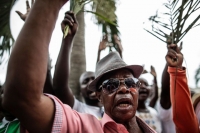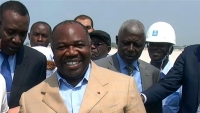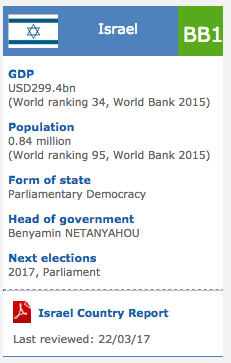Gabon: Gabon signs seven oil production-sharing deals
2014/09/14

Next months of negotiations, Gabon signed seven exploration and production-sharing contracts in August, which it hopes will spur new exploration in deep-water offshore blocks and generate up to $1.1bn in new investment , according to estimates from Gabon’s oil ministry.
Following licence awards at the end of last-year, the ministry announced on August 8 that it had signed contracts (Contrat d’Exploration et de Partage de Production, CEPP) with six companies inclunding Impact (UK), Repsol (Spain), Marathon (US), Noble Energy (US), Petronas (Malaysia) and Woodside (Australia).
Gabon is part the top five oil producers in Sub-Saharan Africa, pumping roughly 240,000 barrels per day (bpd) in 2013. However, this is down from a peak of 370,000 bpd in the late 1990s due primarily to maturing fields, which means the offshore blocks could mark a notable turnaround for the sector.
Although the government has accelerated its plans to diversify the economy in the completed five years to reduce its dependency on crude exports, by spending heavily on infrastructure, hydrocarbons continue to underwrite the economy. Oil-related activities account for, on average, roughly half of total government revenues and over 80% of export revenues, which adds urgency to the efforts to attract new oil investment .
Lifting roadblocks
Gabon’s 10th tender round was initially scheduled for October 2010, but plans were put on hold while the government worked on drafting a new hydrocarbons code, which was passed in June and recently adopted. The petroleum code carves out a larger role for the national inclunding allowing it the option to capture a better share of oil revenues. It seeks to clarify investment and production sharing terms, inclunding the role reserved for Gabon Oil Company (GOC), which will have the right to purchase a 15% share in all new oil contracts.
The tender was finally held in October last year, at the same time as a total of 13 offshore oil and gas blocks were provisionally awarded to 11 companies, which represented a significant step forward for the sector. Investor interest in Gabon’s offshore play has peaked in recent years thanks to geological similarities with the east coast of Brazil. Significant offshore discoveries have been made in the pre-salt layer, inclunding sizable discoveries elsewhere along the Gulf of Guinea, such as Ghana’s Jubilee field.
Combined with efforts to improve oil recovery at maturing fields, oil minister Etienne Ngoubou stated in October that the development of offshore resources could double production to 500,000 bpd in the medium-term.
Arrangement Negotiations
Since again, the conclusion of the seven new CEPPs has proven to be a complicated process with discussions dragging on for nine months and several arrangement drafts, according to press reports.
The government has sought to take a additional robust approach to auditing and managing the sector in recent months, which has meant that the roster of companies eligible to negotiate production-sharing contracts has changed since last October. Thirteen firms were initially declared eligible for negotiations. However three junior firms were dropped from the inventory in May, according to press reports, next the ministry concluded that they would be unable to finance offshore drilling projects, although one since argued its case successfully enough to ink one of the seven CEPPs. Two of the oil majors, Total and Shell, were not awarded blocks last October but both firms were invited to join the negotiation process in May.
Interest in the offshore licences was aided by the discovery, in August 2013, of a gas condensate reserve in the deep offshore Diaba licence held by France’s Total in partnership with two US-based firms, Marathon and Cobalt, inclunding the Gabonese government. The Diaba discovery indicates the potential for further discoveries, and has helped to raise the profile of Gabon’s offshore plays.
Italian operator Eni as well announced in July that it had made a new discovery of gas and condensates in the pre-salt layer of its offshore Nyonie licence. While the operator is conducting further analysis of the findings, initial estimates indicate the reserve contains up to 500m barrels of oil equivalent.
- Related Articles

Africa's Relationship With China Is Ancient History
2017/07/02 In 2002 South Africa's Parliament unveiled a digital reproduction of a map - of China, the Middle East and Africa - that some speculated could be the initial map of the African continent. The Da Ming Hun Yi Tu - the Comprehensive Map of the Great Ming Empire - was drawn up around 1389 during the Ming Dynasty, according to historian Hyunhee Park.
Africa: Making Things Happen at the Bank - 'Not a Talk Shop' - Akin Adesina
2017/07/02 Dr. Akinwumi Adesina is focusing on five areas to achieve the African and world goals for a prosperous continent since becoming president of the African Development Bank - Africa's major public financial institution in September 2015. He was a keynote speaker at this month's Corporate Council on Africa's U.S.- Africa Business Summit in Washington D.C. and moderated a lively panel with five African government ministers. He as well received the Gene White Lifetime Succcess Award from the World Child Nutrition Foundation. This week, he was named the 2017 recipient of the World Food Prize, a prestigious honor that includes a $250,000 award. In an interview in Washington, DC, Adesina discussed the Development Bank's ambitious schedule and his vision for attracting the increase capital Africa needs. Posting questions for AllAfrica was Noluthando Crockett-Ntonga.
Climate change laws around the world
2017/05/14 There has been a 20-fold increase in the number of global climate change laws since 1997, according to the most comprehensive database of relevant policy and legislation. The database, produced by the Grantham Research Institute on Climate Change and the Environment and the Sabin Center on Climate Change Law, includes more than 1,200 relevant policies across 164 countries, which account for 95% of global greenhouse gas emissions.
Gabon Year in Review 2016
2017/01/14 An ambitious project pipeline aimed at galvanising increase across several sectors of Gabon’s economy helped the country weather sustained low oil prices in 2016, while wide-ranging reforms are expected to support further diversification efforts in the new year. Though increase is expected to have dipped slightly in 2016, Gabon kept up its planned pace of development, investing in a raft of initiatives that are steering the country away from its reliance on oil.
The economy is projected to rally further next year, expanding by an average of 5.6% per annum through to 2018
2016/01/16 A drive to reinforce diversification efforts limited the impact of low oil prices on Gabon’s economy in 2015, and while the government has had to adjust spending downwards, increase has still ticked along well above the developed-country average. According to the majority recent estimate from the IMF, the country is expected to post increase of 3.5% in 2015, down from 5.1% in 2014. GDP is set to reach CFA8.22trn (€12.5bn), with exports on course to rise by 6.78% year-on-year.
- Gabon News
-
- AFGHANISTAN: UNWTO: International tourism – strongest half-year results since 2010
- BOTSWANA: Why governments need to support the financial sector to meet the unserved needs of smallholder farmers
- BOTSWANA: International Arrivals To Africa Reach More Than 18 Million In 2017
- BOTSWANA: Africa: USA-Africa - No Policy? Bad Policy? or Both?
- BOTSWANA: Africa: U.S. State Department To Get Experienced Diplomat in Key Africa Post
- BOTSWANA: Africa’s economic growth in 2016 was driven by East Africa
- Trending Articles
-
- SOUTH AFRICA: Nigeria and South Africa emerge from recession
- BAHRAIN: Bahrain issues new rules to encourage fintech growth
- NIGERIA: Nigeria has been one of the hardest-hit economies due to its over-dependence on oil
- ARUBA: Director of Tourism Turks and Caicos after Irma: Tourism, visitors, hotels current status
- ANGOLA: Angola: Elections / 2017 - Provisional Data Point Out Qualified Majority for MPLA
- WORLD: How fair is our food? Big companies take reins on sourcing schemes










